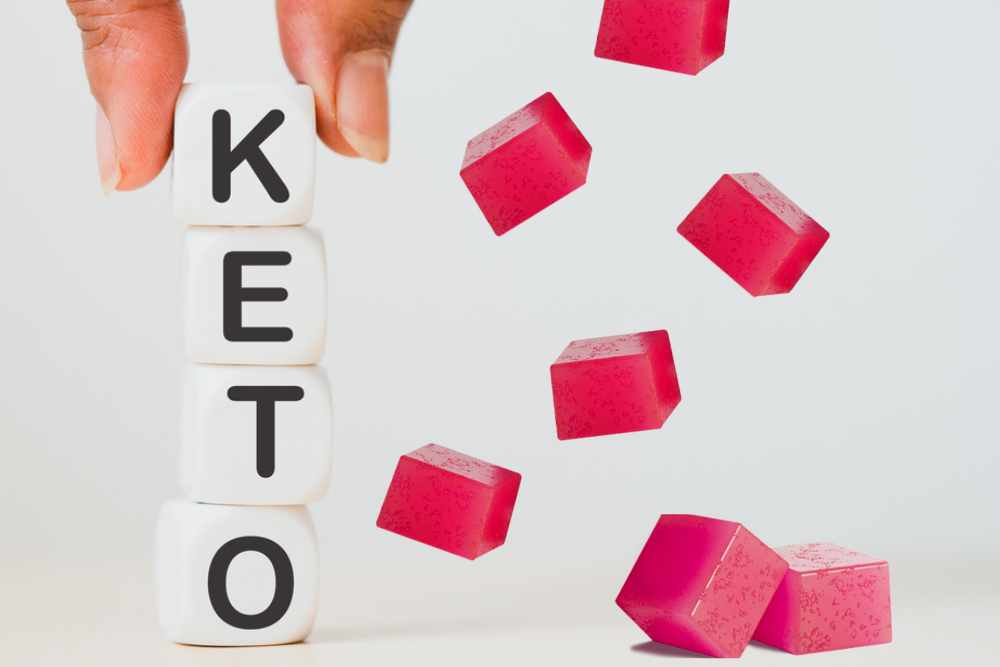In the past 15 years, human research on the effects of cannabis has become of increasing interest to scientists, medical professionals, and researchers (and you too, right?).
One of the many compounds found in cannabis, commonly known as CBD, has been explained to have beneficial effects on diabetes. This means that CBD has been suggested to have therapeutic potential in a wide array of disorders including diabetes. According to the World Health Organization, diabetes is one of the leading causes of death in the world.
There is a continuing accumulation of research being done analyzing various therapeutic effects and benefits of cannabidiol, especially in the treatment of pain, which may also apply to the treatment and management of diabetes. Cannabis and cannabidiol (CBD) sciences are quickly evolving within the research and medical sectors, with increasingly regulated production and protocol standards.
However, further research is needed to optimize the use of cannabinoids for potential user effects and specific symptom-targeted therapies.
So how does CBD oil come into play with diabetes? Funny you ask, I’m here to get you in the know with what’s going on in the research & what it means for you.
WHAT IS DIABETES?
According to the Center for Disease Control (CDC), diabetes is an inflammatory condition in which the body is not able to properly process food for use as energy. Most of the food you eat get turned into glucose (aka sugar) for your body to use as energy.
The pancreas produces a hormone (aka insulin) to help glucose get into the cells of our bodies. Unfortunately, when someone has diabetes, their body either can’t use its own insulin like it should or they just don't make enough insulin. Because of this, this causes glucose to accumulate in the blood. Many people refer to diabetes as “sugar” or that they have “high blood sugar”.
As I’m sure you’ve heard, there are two types of diabetes: Type 1 Diabetes and Type 2 Diabetes. Type 1 Diabetes, also known as insulin-dependent diabetes, is a chronic condition in which the pancreas produces very little to no insulin. Type 2 Diabetes (T2D) is also a chronic condition that affects the way your body metabolizes glucose. Type 2 diabetes can involve the body resist the effects of insulin or the body does not produce enough insulin to maintain normal levels of glucose.
So can CBD oil be used for Type 1 and Type 2 Diabetes? Hold that thought!
WHAT IS CBD OIL?
CBD is the nonpsychoactive component that naturally occurs in the cannabis plant. It is one of the compounds found in cannabis, known as cannabinoids. Relatable analogies always help me understand, so think of CBD as being the sibling that doesn’t ever get in trouble and always do what they're told. The sibling that’s nonpsychoactive and is good naturally. Simple right?
Not only is CBD largely considered to have excellent medical benefits, but also holistic benefits.
In medicine, patients normally use CBD in an oil form (which I’ll touch on below).
So does CBD oil get you high? Funny you ask, CBD does not have mind-altering effects. It doesn’t cause the “high” feeling but still does induce relaxation.
There are three varieties of CBD oil:
- CBD Isolate. CBD molecules are completely isolated into a 99.8% pure compound form.
- Broad Spectrum CBD Oil. This contains all-natural occurring cannabinoids and terpenes in the hemp plants (the THC has been isolated away from the final product).
-
Full Spectrum Oil. Somewhat like the broad spectrum CBD, but has the cannabinoids and terpenes in eluding THC (the amount of THC is less than 0.3%).
DIABETES, MEET CBD
WHAT THE RESEARCH SAYS
Recent studies have begun to show promise in the research, focusing on human interventions with CBD oil in many health conditions. The medical literature regarding CBD with management and treatment of diabetes show supporting evidence for cannabis/cannabinoids in the treatment of diabetes.
Many of the preclinical research studies that have been on CBD oil for diabetes thus far have been done on animals. But nonetheless, the findings have been stellar!
In 2006, an original study by Weiss et al. published in Autoimmunity, analyzed the effects of cannabidiol in non-obese diabetic (NOD) mice. Two groups of mice serve as controls - one group received the CBD oil only, and one group remained untreated. The group being treated with the CBD was administered 5 mg/kg/day, 5 times a week. The mice that were not given treatment, developed diabetes by the end of the study. The mice that were CBD oil-treated demonstrated a significant reduction in the incidence of diabetes by 86%. This study suggested that CBD can inhibit and delay inflammation in non-diabetic mice resulting in a decreased percentage of diabetes.
CBD may lead to decreased inflammation.
Published in Clinical Hemorheology and Microcirculation in 2016, Lehmann and colleagues led an experimental study assessing the effects of cannabidiol treatment in reducing early pancreatic inflammation in Type 1 Diabetics in non-obese diabetic (NOD) mice. The mice were administered 5 mg/kg CBD or a controlled vehicle for 10 weeks time. The researchers found that the CBD oil-treated NOD mice showed significantly reduced markers of inflammation of the pancreas.
CBD oil may help reduce pancreatic inflammation.
A 2018 article by Santiago et al. published in Neurotoxicity Research found positive effects of CBD oil supplementation in middle-aged rats. The rats were divided into four groups: sham surgery treated with CBD (Sham+CBD), sham surgery with vehicle (Sham+veh), chronic cerebral hypoperfusion (CCH) surgery with CBD (CCH+CBD), and CCH surgery treated with vehicle (CCH+veh). The researchers found that both groups with CBD treatment (Sham+CBD, CCH+CBD) showed a decrease in body weight, improved memory performance, and reduced hippocampal levels of inflammation markers.
In this study, CBD oil was shown to reduce inflammation, decrease body weight, and improve one’s memory.
What about us humans?A randomized, double-blind, placebo-controlled, parallel-group pilot study was conducted on 62 human subjects with non-insulin treated type 2 diabetics (T2D). Published in 2016 in Diabetes Care, Jadoon et al. analyzed the safety and efficacy of cannabidiol and tetrahydrocannabivarin on lipid and glycemic parameters in T2D patients.
Patients were randomized into 5 treatment groups: 1) CBD, THCV, 1:1 ratio of CBD and THCV, 20:1 ratio of CBD and THCV, and a matched placebo for 13 weeks. No specific group had a significant impact on all treatments, however, the CBD grouped subjects had a significant decrease in resistin, a hormone suggested to be an important link between obesity, insulin resistance, and diabetes. Also, the CBD grouped subjects had a significant increase in glucose-dependent insulinotropic peptide - the hormone that encourages the release of insulin into the bloodstream to control blood sugar levels.
CBD oil may help control blood sugar levels.
So yes - there is still work to be done in human clinical trials with CBD oil, but the findings on what has been done so far, are holding true for CBD oil and its health benefits.
These studies show research-based evidence that CBD oil supplementation can reduce markers of inflammation in diabetic rats, mice, and human subjects.THE KT TAKEAWAY
Curious about what Nanocraft CBD has to offer? Keep reading!
* DISCLAIMER: The information in this article is for educational purposes only. It does not exploit or provide medical advice of any kind. Therefore, any reliance you place on the information below is strictly at your own risk. Please check with your medical provider before starting or changing a CBD routine.
HOW TO USE CBD
New to CBD? check out the related link to the new user guide.
Cannabinoid Options of Application:
Transdermal (Skin)-Topical Salve: This application is typically used for acute and direct application. Such as an ankle sprain, arthritis, tendonitis, plantar fasciitis, carpal tunnel, tennis elbow, fibromyalgia, and migraines. Full-spectrum salves provide a whole panel of cannabinoids for increased potency.
Edible Application:
CBD OIls: Tincture oils are utilized in a full-spectrum form (whole plant-derived) and Isolated forms (Pure CBD) that are applied directly under the tongue or mixed in water. This form is typically used for direct application to the central nervous system and the entire body for ailments like anxiety, stress, epilepsy, insomnia, sleep disorders, depression, PTSD, autoimmune responses, ADHD, cancer, systemic inflammatory diseases such as cardiovascular disease, diabetes, and metabolic syndrome. All applications are available as CBD isolate, broad-spectrum and full-spectrum.
CBD Capsules: Full-spectrum soft gels essentially have the same application as tincture oils. The difference is that each soft gel is measured to a specific milligram to provide a consumer with a perfectly measured dose of CBD. This would be used for any ailments one might use CBD for, including all the ones listed above.
Superfood powder: Superfood green powder has a broad range of greens, phytonutrients, vitamins and of course CBD. This application is great to give some nice, clean energy boost before a workout or just to get your day started naturally with improved focus.
2.Lehmann C, Fisher NB, Tugwell B, et al. Experimental cannabidiol treatment reduces early pancreatic inflammation in type 1 diabetes. Clinical Hemorheology and Microcirculation. 2016.
3. Santiago, AN, Mori MA, et al. Effects of cannabidiol on diabetes outcomes and chronic cerebral hypoperfusion comorbidities in middle-aged rats. Neurotoxicity Research. 2018.
4. Weiss L, Ziera M, Reich S, Har-noy M, et al. Cannabidiol lowers incidence of diabetes in non-obese diabetic mice. Autoimmunity. 2006.
Nanocraft Sciences
Content Writer x Physiologist x Researcher
Kirsten Thornhill was born and raised in a small farm town in Stanislaus County, California. Kirsten graduated with a Master of Science degree in exercise physiology from Point Loma Nazarene University in San Diego, CA. She is very passionate about human physiology and the metabolic and nutritional adaptations that occur during exercise in active individuals and athletes. Kirsten has specialized in maximal oxygen consumption testing in athletes and teaching laboratory, clinical, practical, and research applications of exercise testing to college students. She enjoys educating and informing people about the importance of lifetime movement, plant-based eating, and health research and development. Her passion for natural, lifestyle medicine enables her to strive when promoting health and education.
- #cbd
- #cbdforathletes
- #hemp
Tagged under














No comments yet!
Be the first to comment